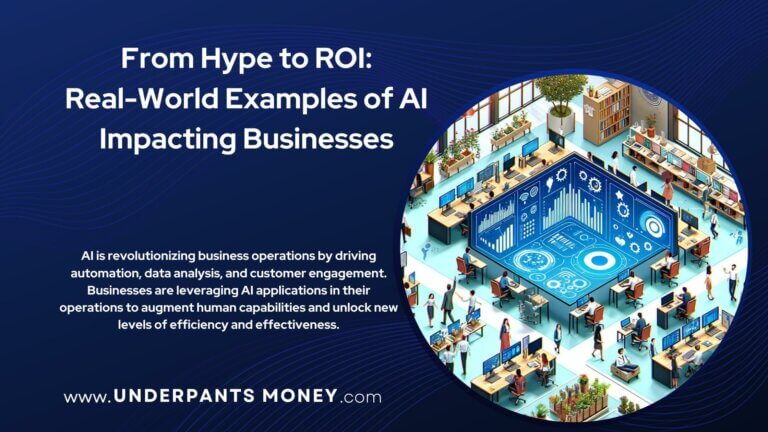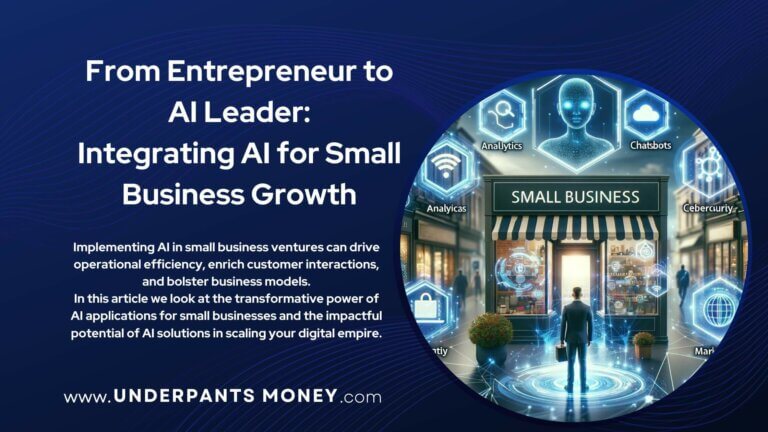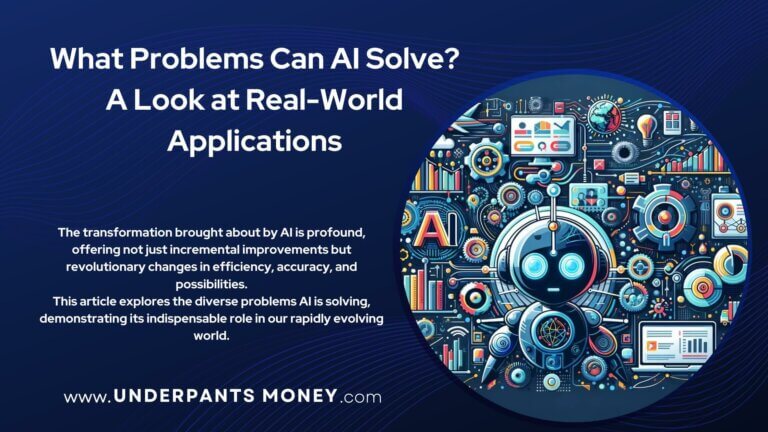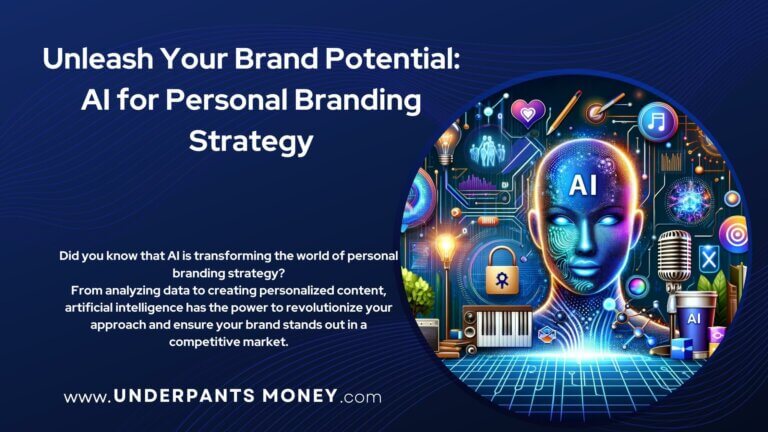Top AI Trends for Entrepreneurs in 2024
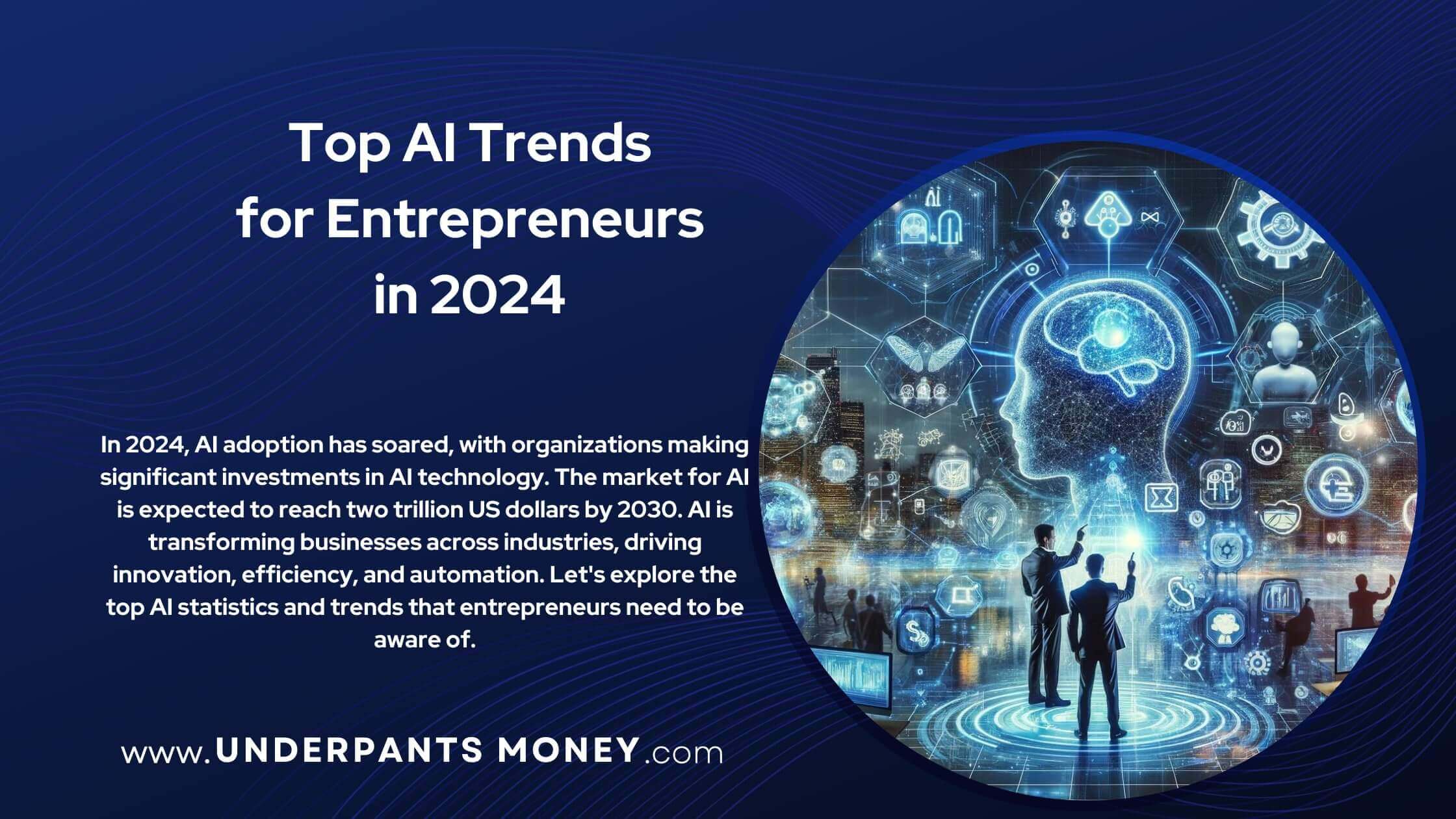
In 2024, AI adoption has soared, with organizations making significant investments in AI technology. The market for AI is expected to reach two trillion US dollars by 2030. AI is transforming businesses across industries, driving innovation, efficiency, and automation. Let’s explore the top AI statistics and trends that entrepreneurs need to be aware of.
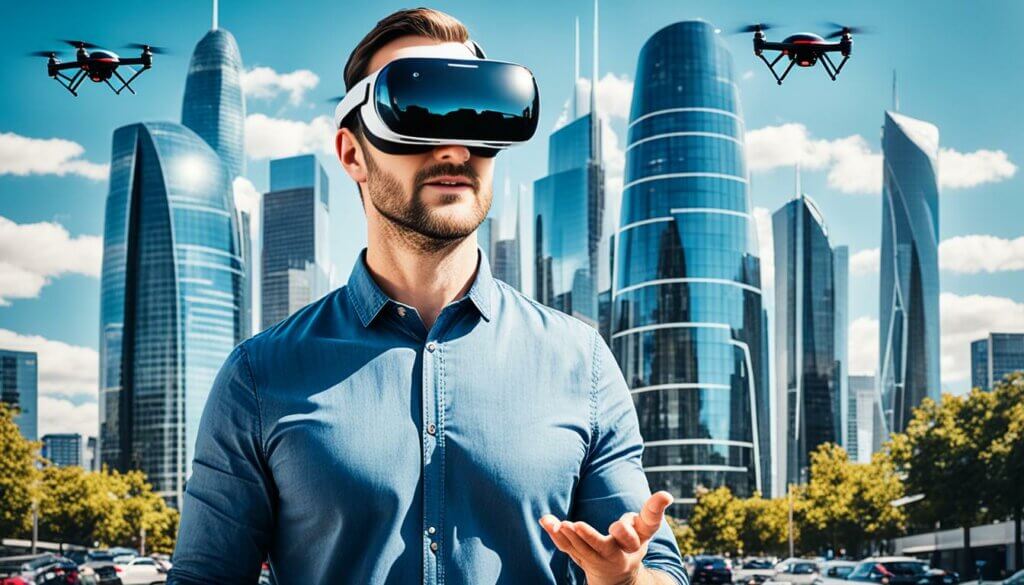
Key Takeaways:
- Artificial intelligence startups are attracting significant investments as AI adoption continues to grow.
- Machine learning innovations are driving the future of the tech industry, enabling businesses to streamline processes and enhance decision-making.
- Entrepreneurship in AI offers opportunities for businesses to leverage emerging technologies and gain a competitive advantage.
- AI applications for startups encompass various industries, including healthcare, finance, e-commerce, and more.
- Keeping up with the latest tech trends and advancements in AI development is crucial for entrepreneurs to stay ahead in the market.
Top AI Statistics in 2024
In 2024, the adoption of artificial intelligence (AI) is skyrocketing as organizations make significant investments in AI technology. The market for AI is projected to reach a staggering two trillion US dollars by 2030, highlighting the immense opportunities in this field. AI is transforming businesses across various industries, driving innovation, efficiency, and automation.
According to Forbes Advisor, several AI use cases have gained prominence in businesses, including:
- Customer service: AI-powered chatbots and virtual assistants are enhancing customer support experiences.
- Cybersecurity: AI algorithms are being utilized to detect and counter cyber threats, ensuring robust protection for organizations.
- Customer relationship management: AI-enabled systems help companies analyze and leverage customer data to enhance engagement and satisfaction.
- Digital personal assistants: Personalized AI assistants, such as Siri and Alexa, are becoming integral parts of users’ daily lives.
The growth potential of AI is remarkable. The AI market is expected to witness a compound annual growth rate (CAGR) of 37.3% from 2024 to 2030, driving significant advancements and economic impact. This growth is anticipated to create around 97 million new jobs, offering tremendous opportunities for professionals in the AI domain.
A fascinating statistic reveals that 97% of business owners believe that ChatGPT, a language model built using generative AI, can bring substantial benefits to their businesses. This demonstrates the recognition of AI’s value and its potential to revolutionize various industries.
| AI Statistics | Value |
|---|---|
| Projected AI market size by 2030 | $2 trillion |
| CAGR of AI from 2024 to 2030 | 37.3% |
| Number of new jobs AI is expected to create | 97 million |
| Percentage of business owners recognizing the benefits of ChatGPT | 97% |
These compelling AI statistics emphasize the tremendous growth and potential impact of AI on industries and the economy. As businesses continue to harness the power of AI, entrepreneurs need to stay informed about the latest trends and tap into the myriad opportunities this advanced technology presents.
Top AI Technology Trends
The world of AI is witnessing several emerging trends that are shaping the landscape of technology. From conversational AI to ethical AI, these advancements are revolutionizing industries and pushing the boundaries of innovation. Let’s explore the top AI technology trends for 2024:
1. Conversational AI
The rise of conversational AI, including chatbots and virtual assistants, is transforming customer interactions and support services. With the chatbot market projected to reach $1.25 billion by 2025, businesses are leveraging these AI-powered systems to enhance customer experiences, streamline processes, and increase operational efficiency.
2. Predictive Analytics
Predictive analytics has become a game-changer for businesses, leveraging AI algorithms and machine learning models to analyze vast amounts of data and make accurate predictions. This technology allows organizations to optimize decision-making processes, identify customer patterns, forecast trends, and uncover hidden insights that can drive growth and competitive advantage.
3. Low-Code No-Code AI
Low-code no-code AI platforms empower businesses to build and customize intelligent systems without extensive coding expertise. This trend enables organizations to rapidly develop, deploy, and iterate AI applications, reducing time-to-market and accelerating digital innovation. With accessibility and ease of use at the forefront, low-code no-code AI democratizes AI development for businesses of all sizes.
4. Ethical AI
As AI continues to shape various aspects of society, ethical considerations are gaining prominence. Ethical AI focuses on transparency, fairness, and accountability in AI systems. It aims to address biases, prevent discrimination, and ensure ethical decision-making processes. Organizations are increasingly adopting ethical AI practices to build trust, mitigate risks, and establish responsible AI frameworks.
5. Multi-Modal AI
Multi-modal AI leverages diverse data streams, including text, images, and audio, to enable more comprehensive and context-aware AI models. By combining different modalities, AI systems can better understand and interpret information, leading to improved accuracy and performance. Applications of multi-modal AI range from speech recognition and image classification to autonomous vehicles and healthcare diagnostics.
6. Digital Twins
Digital twins create virtual replicas of physical assets, enabling organizations to simulate, monitor, and optimize real-world processes. This technology finds applications in industries such as manufacturing, healthcare, and infrastructure management. By harnessing the power of digital twins, businesses can improve operational efficiency, reduce costs, and enhance predictive maintenance.
7. Collaboration of Humans and Robots (Cobots)
The collaboration of humans and robots, often referred to as Cobots, is revolutionizing industries by combining the strengths of both. Cobots enhance productivity, safety, and efficiency in various sectors, including manufacturing, logistics, and healthcare. With AI-powered robots working alongside human workers, businesses can achieve higher levels of output, precision, and automation.
8. AI Security
AI-powered cybersecurity plays a crucial role in protecting businesses from evolving cyber threats. As AI systems become more sophisticated, so do cyberattacks. AI security focuses on developing robust defenses against malicious activities, detecting vulnerabilities, and ensuring data privacy. By integrating AI-driven security measures into their infrastructure, organizations can safeguard their critical assets and maintain trust with customers.

These AI technology trends are reshaping industries, empowering businesses with innovative solutions, and paving the way for a future driven by intelligent technologies. By staying abreast of these trends and embracing AI advancements, organizations can gain a competitive edge and position themselves at the forefront of the AI revolution.
| AI Technology Trends | Key Highlights |
|---|---|
| Conversational AI | Chatbot market expected to reach $1.25 billion by 2025. |
| Predictive Analytics | Enables informed decision-making and optimized processes. |
| Low-Code No-Code AI | Accelerates AI application development without extensive coding. |
| Ethical AI | Focuses on transparency, fairness, and responsible AI practices. |
| Multi-Modal AI | Leverages diverse data streams for improved accuracy and performance. |
| Digital Twins | Virtual replicas optimize real-world processes and predictive maintenance. |
| Collaboration of Humans and Robots (Cobots) | Enhances productivity, safety, and automation across industries. |
| AI Security | Crucial in protecting businesses from evolving cyber threats. |
Generative AI and the Future of AI Startups
Generative AI, the ability to create new data or content using existing data sets, is a growing field that holds immense potential for various industries. This advanced technology has found applications in fields such as language processing, art generation, and more. As it continues to evolve, generative AI is poised to revolutionize the way businesses operate and create value.
AI startups, like OpenAI and Anthropic, are at the forefront of harnessing the power of generative AI. These innovative companies have successfully raised billions of dollars in funding, highlighting the significant interest and investment in this emerging field. By leveraging generative AI, these startups are creating groundbreaking solutions that solve complex problems and offer novel experiences to users.
However, the AI market is dynamic and constantly evolving. As valuations and investments in AI startups soar, there may be a need for a recalibration in the industry. It is crucial for entrepreneurs and investors to stay informed about the current trends and developments to make strategic decisions and navigate the evolving landscape of AI valuations.
Furthermore, as generative AI becomes more pervasive, ethical and regulatory considerations come to the forefront. Issues such as bias, privacy, and misuse of AI algorithms require careful attention and regulation to ensure responsible and equitable use of generative AI technology. Stakeholders, including government bodies and industry organizations, are actively working on establishing frameworks and guidelines to address these concerns.
Despite the challenges, the future of AI startups in the generative AI space looks promising. Opportunities abound in various layers of the AI stack, from infrastructure and platform development to industry-specific applications. As generative AI continues to mature, startups have the potential to disrupt traditional industries, drive innovation, and unlock new possibilities.
Key AI Startups and their Generative AI Innovations
| Company | Generative AI Innovation |
|---|---|
| OpenAI | Developed GPT-3, a powerful language model capable of generating human-like text and facilitating natural language processing tasks. |
| Anthropic | Focuses on solving complex challenges in machine learning interpretability and explainability, enabling the creation of more transparent and trustworthy AI systems. |
| DeepArt | Uses generative AI algorithms to transform photos into artistic masterpieces by emulating the style of renowned painters. |

As the field of generative AI continues to advance and mature, entrepreneurs and investors must closely monitor the developments to seize opportunities, address challenges, and contribute to the responsible growth of AI startups. With the right strategies and ethical considerations, the future holds immense potential for generative AI to reshape industries, drive innovation, and improve the human experience.
Conclusion
In conclusion, AI technology is rapidly evolving and shaping the future of businesses. Entrepreneurs must stay informed about the top AI trends to gain a competitive advantage. The adoption of AI is driving innovation, efficiency, and automation across industries.
Startups in the AI space, such as OpenAI and Anthropic, are attracting significant funding, indicating the potential and interest in AI technology. However, it is important to note that the market may experience a recalibration in the future as valuations and investment continue to rise.
As AI continues to advance, the future of AI startups and the impact of AI on businesses look promising. With the establishment of regulations and the focus on ethical AI practices, entrepreneurs should embrace AI and explore its applications to stay ahead in the ever-changing tech industry. The future holds immense opportunities for AI startups and the continued growth and integration of AI technology in various aspects of our lives.
FAQ
What are the top AI trends for entrepreneurs in 2024?
The top AI trends for entrepreneurs include the adoption of AI technology to drive innovation, efficiency, and automation in businesses. Entrepreneurs should also explore emerging technologies such as conversational AI, predictive analytics, low-code no-code AI, ethical AI, multi-modal AI, digital twins, collaboration of humans and robots, and AI-powered cybersecurity.
What are the key AI statistics in 2024?
The AI market is expected to reach two trillion US dollars by 2030 and grow at a CAGR of 37.3%. AI is projected to create around 97 million new jobs. Common use cases for AI in businesses include customer service, cybersecurity, customer relationship management, and digital personal assistants. Additionally, 97% of business owners believe that ChatGPT, a language model built using generative AI, will benefit their businesses.
What are the top AI technology trends?
The top AI technology trends include the rise of conversational AI, such as chatbots, which is expected to reach a market size of $1.25 billion by 2025. Predictive analytics is helping businesses make informed decisions and optimize processes. Low-code, no-code AI allows businesses to customize intelligent systems quickly and cost-effectively. Ethical AI and explainable AI are emerging trends that focus on transparency and accountability. Multi-modal AI leverages diverse data streams, while digital twins create virtual replicas of physical assets. The collaboration of humans and robots, known as Cobots, enhances productivity and safety. AI-powered cybersecurity is crucial in protecting businesses from cyber threats.
What is generative AI and its impact on AI startups?
Generative AI is the ability to create new data or content using existing data sets. It has applications in language processing, art generation, and more. AI startups, like OpenAI and Anthropic, have raised billions of dollars in funding by leveraging generative AI technologies. However, as the AI market continues to grow, valuations and investments in AI startups may experience a recalibration. Ethical and regulatory considerations, such as bias and misuse of AI, are also emerging concerns for AI startups.
What is the future of AI for entrepreneurs?
The future of AI for entrepreneurs looks promising. AI technology is rapidly evolving and shaping the future of businesses. Entrepreneurs who embrace AI and leverage its applications will gain a competitive advantage in the ever-changing tech industry. AI startups will continue to attract significant funding, and as regulations are established, the impact of AI on businesses will become more pronounced. It is crucial for entrepreneurs to stay informed about AI trends and developments to stay ahead in this dynamic landscape.
.25 billion by 2025. Predictive analytics is helping businesses make informed decisions and optimize processes. Low-code, no-code AI allows businesses to customize intelligent systems quickly and cost-effectively. Ethical AI and explainable AI are emerging trends that focus on transparency and accountability. Multi-modal AI leverages diverse data streams, while digital twins create virtual replicas of physical assets. The collaboration of humans and robots, known as Cobots, enhances productivity and safety. AI-powered cybersecurity is crucial in protecting businesses from cyber threats.

